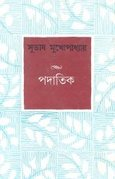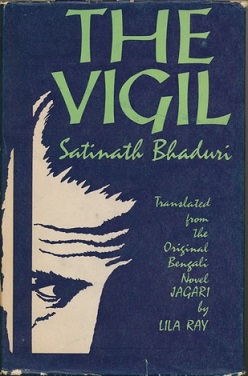Related Research Articles
Ramaraju is a play written by Srinivasa Rao. Its subject is the fall of the Vijayanagara.

Akshay Kumar Baral (1860–1919) was a Bengali poet and writer. He was born in Kolkata. The family originally hailed from Chandannagar, Hooghly District.

Devarakonda Balagangadhara Tilak was an Indian poet, novelist and short story writer.
Edappally Raghavan Pillai was an Indian poet of Malayalam literature and a close associate of Changampuzha Krishna Pillai. The pair, the front-runners of romanticism in Malayalam, was considered by many as the Shelley and Keats combination of Malayalam poetry. Kesari Balakrishna Pillai compared Pillai to the Italian poet, Giacomo Leopardi.
Sadhana (साधना) is a Socialist Marathi weekly publication that was established by Pandurang Sadashiv Sane, a leader of Rashtra Seva Dal on 15 August 1948. It was edited by Marathi writer Shankar Dattatraya Javdekar from 1950 to 1952. Yadunath Thatte became Sadhana's editor in 1956 and continued to lead it until 1982. G.P. Pradhan was the next editor of the weekly.

Rangbhoomi: The Arena of Life is a Hindi language novel by Premchand. The novel features an idealist protagonist inspired by Gandhian values.
Shyam Narayan Pandey was an Indian poet. His epic Jauhar, depicting the self-sacrifice of Rani Padmini, a queen of Chittor, written in a folk style, became very popular in the decade of 1940-50.

Padatik first published in 1940 is a Bengali book of poems written by Subhash Mukhopadhyay. This was Mukhopadhyay's first published book. This book created a storm in Bengali literature. Mukhopadhyay wrote this book as a representative of a political party. Mukhopadhyay in his personal life was a consistent Marxist. In this book, poet showed his zeal to redeem the poor and suffering masses from exploitation.
Kato Ajanare is a Bengali novel written by Mani Shankar Mukherjee. This was Shankar's first novel which mainly deals with author's memories of Mr. Barwell, a renowned Barrister of the Calcutta High Court.

Damodar Khushaldas Botadkar was a Gujarati language poet of early 20th century.

Anantrai Manishankar Raval was a Gujarati critic and editor from India. Born and studied in Amreli, he worked briefly with a daily. He taught at several colleges before joining government as a director of language department. He wrote criticism chiefly under the pen name Shaunak and edited several works of Gujarati literature and litterateurs.

Jayant Heerji Khatri (1909-1968) was a Gujarati short story writer.

Jagari or Jagori is a Bengali novel written by Satinath Bhaduri. The novel is considered to be a master-piece of Indian literature and it was first published in 1945. It is a semi-autobiographical novel and it is set in the 1940s's during the Quit India Movement.

Purvalap is a posthumously published collection of poems by Manishankar Ratnji Bhatt alias Kavi Kant, in 1923. Kant has invented a new form of Khandkavya by blending the Greek and Sanskrit concepts of tragedy. Kant has given many literary significant poems by this work such as Vasant vijay, Chakravakmithun, Devyani and Sagar Ane Shashi.
Bachubhai Popatbhai Ravat was a Gujarati editor and art critic from India.

Kuntala Kumari Sabat (1901–1938) was an Odia poet during colonial India. She was one of the women poets who came into prominence from Odisha during India's freedom struggle. She was multifaceted personality. She was a physician, writer, poet, editor, leader of nationalist movement and social worker. She was honored with Utkala Bharati in 1925.
Binod Chandra Nayak was an Odia writer. He was known for his writing that was influenced by modern poetry while being romantic. He was awarded the 1970 Kendra Sahitya Akademi award for his poetry collection Sarisrupa.
Nabarabi is an Odia language literary magazine of 1970s getting published from Kolkata, India. The chief patron of Nabarabi was Patiram Parija. Its publication started in July 1970 and continued until December 1976 as a monthly magazine with Rabindra Kumar Parija as its editor. After the death of its patron Patiram Parija, the publication of the magazine was stopped. In 1996, it was revived by Sandhya Mohanty, granddaughter of Late Patiram Parija, with support of her husband Sarbeswar Mohanty from Bhubaneswar, Odisha. Currently the magazine is getting published irregularly with Sandhya Mohanty as its Editor.
Sneha Devi was an Indian writer of Assamese literature. She was awarded a posthumous Sahitya Akademi Award in 1990.
References
- ↑ "Kazi Nazrul Islam and Our Struggle for Emancipation". The Daily Star. 25 May 2019. Retrieved 25 July 2020.
- ↑ Das, Sisir Kumar (2005). History of Indian Literature: 1911-1956, struggle for freedom : triumph and tragedy. Sahitya Akademi. pp. 81–82. ISBN 978-81-7201-798-9.
- 1 2 Qayyum, Mohammad Abdul. "Langal". Banglapedia. Retrieved 25 July 2020.
- ↑ Das, Sisir Kumar (2005). History of Indian Literature: 1911-1956, struggle for freedom : triumph and tragedy. Sahitya Akademi. p. 82. ISBN 978-81-7201-798-9.
- ↑ "The First Issue of "Langal"". Daily Sun. Retrieved 25 July 2020.
